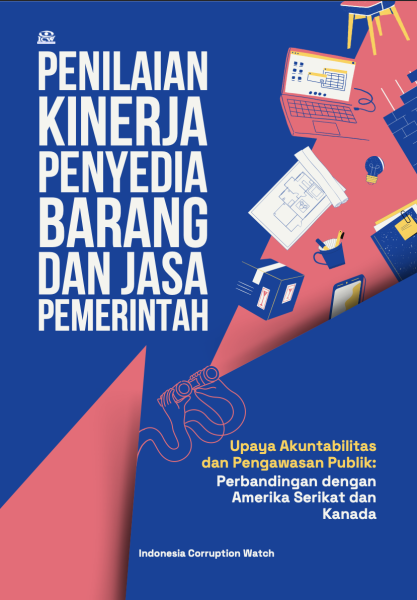Performance Assessment of Public Procurement Suppliers

Public procurement is one of the public sectors that is highly vulnerable to corruption. The government intends to mitigate this risk by having in place a supplier performance assessment policy that is executed using the Supplier Performance Information System (SIKaP). Procurement Officials (POs) can assess the performance of their suppliers using this system.
POs’ responsibility to carry out performance assessment on suppliers is regulated in Presidential Regulation No. 16 of 2018 concerning Public Procurement. The technical detail of this assessment is governed in the National Public Procurement Agency (NPPA) Regulation No. 4 of 2021 concerning the Development of Business Entities in Public Procurement (NPPA Regulation No. 4 of 2021).
The implementation of supplier assessment is considered not yet optimal. In 2022 and in 2023, the rate of assessment performed by POs was below 20 per cent. Considering this, there is a need to evaluate POs’ performance assessment activities to understand how supplier assessment is carried out and obstacles that hinder its implementation.
The assessment method outlined in NPPA Regulation No. 4 of 2021 can be improved to strengthen the assessment’s objectivity and make the assessment more representative of the work carried out. The method is analyzed and benchmarked against practices in the United States (U.S.) and Canada that use similar assessment method with Indonesia.
This policy paper is an empirical normative study that employs a qualitative method. This paper utilizes legal and regulatory, empirical, and comparative law approaches. The data were collected from primary (through interviews and focus group discussions) and secondary (laws, regulations, academic literature) sources.
This policy paper focuses on the implementation and challenges in carrying out performance assessment in SIKaP. Therefore, any other type and means of performance assessment is excluded. Additionally, this policy paper was prepared from June to August 2024. It is likely that regulations and data cited in this policy paper have evolved since this paper was drafted and published.










